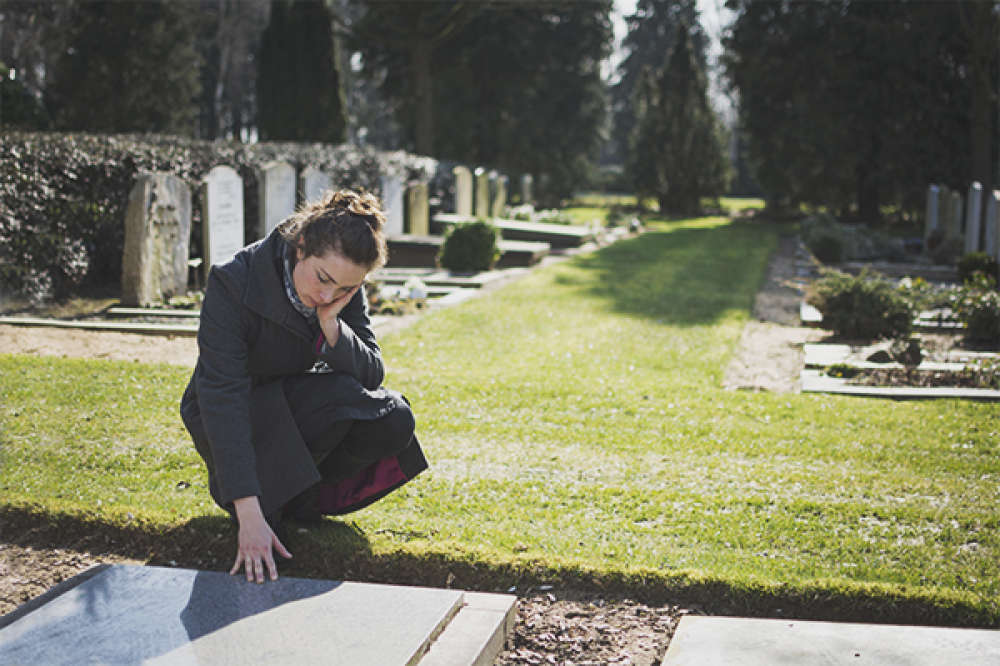When Tina lost her father, those close to her reminded her of the importance of facing and coping with her feelings of sadness and anger about the loss. She also read about and heard from others the importance of not ruminating on what “shoulda woulda coulda” been so she could eventually move on. However, while Tina appreciated the resources and words of advice and comfort, she found that she wasn’t really ruminating, but rather anxiously worrying.
The Difference Between Rumination and Worry
Rumination and worry are both repetitive thinking patterns that occur in grieving individuals. But the primary difference is that rumination is about the past, and worry is about the future.1
Rumination, which is more commonly associated with depression, focuses on the causes and consequences of negative emotions and events from the past.2 For example, if Tina were ruminating, she may find herself continually thinking back to an event where she told her father that she hated him. Then she would have had thoughts such as “Why did I do that? What was wrong with me? I never should have said that. I could have handled it differently.3 If I could go back, I would have just said that I was angry…” Here, the focus is on what she could have, would have, and should have done about something that occurred in the past.
In contrast, worry — most commonly associated with anxiety — focuses on negative emotions and events that may occur in the future. For example, if Tina were worrying, she may find herself continually having thoughts such as “What will I do without him? Who will walk me down the aisle? How will I handle my sadness? What if I can’t handle my sadness?” Here the focus is on what will happen in the future as a result of losing her father.
The Effect of Worry on Bereavement
When it comes to losing a loved one, or in the event of a pregnancy loss, a large body of literature addresses grief or sadness, as well as the negative effect that rumination has on adjusting to the loss. However, according to a new study by researchers at the University of Aberdeen, worry may be an additional factor that negatively affects bereavement.4
To examine this, the researchers gave 155 individuals who had lost an immediate family member self-report questionnaires that assessed their levels of worry, depression, anxiety, and prolonged grief. Six months later, the researchers readministered the questionnaires. The results indicated that an individual’s tendency to worry predicted levels of depression, anxiety, and prolonged grief after six months (even when controlling for how close they were to the deceased).
In short, worry may lead to greater levels of anxiety and depression, as well as prolong the grieving process. While the findings of this study are limited being conducted predominantly on women, they may point to the importance of attending to levels of worry as well as rumination following the loss of a loved one.
Sources
1. Querstret, D. & Cropley, M. (2013). Assessing treatments used to reduce rumination and/or worry: A systematic review. Clinical Psychology Review, 33, 996–1009. doi:10.1016/j.cpr.2013.08.004
2. Eisma, M. C., Boelen, P. A., van den Bout, J., Stroebe, W., Schut, H. A. W., Lancee, J., & Stroebe, M. S. (2015a). Internet-based exposure and behavioural activation for complicated grief and rumination: A randomized controlled trial. Behavior Therapy, 46, 729–748. doi:10.1016/j.beth.2015.05.007.
3. Michael, T., Halligan, S. L., Clark, D. M., & Ehlers, A. (2007). Rumination in posttraumatic stress disorder. Depression and Anxiety, 24, 307–317. doi:10.1002/da.20228
4. Eisma, M. C., Boelen, P. A., Schut, A. W., & Stroebe, M. S. (2017). Does worry affect adjustment to bereavement? A longitudinal investigation. Anxiety, Stress, & Coping, 30(3), 243-252.
Carol S. Lee is a clinical psychology doctoral student at University of Massachusetts Boston. She received her Bachelor of Arts in psychology from University of California San Diego in 2012 and her master’s in clinical psychology from UMass Boston in 2015. Carol works with Dr. Sarah A.
Hayes-Skelton to examine how and why therapeutic exposures and behavioral experiments in treatments for anxiety disorders work. In an effort to examine one piece of this, Carol’s current research draws from both social and clinical psychology to examine the process behind engaging in a behavior despite any fear or anxiety associated with that behavior. Carol and Dr. Hayes-Skelton collaborate to write articles for Anxiety.org.



